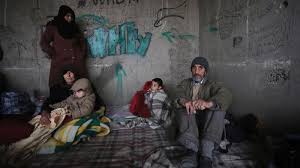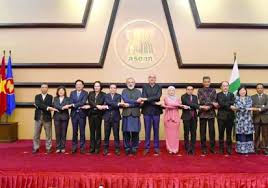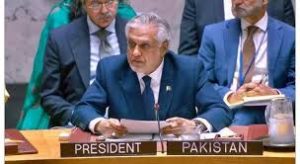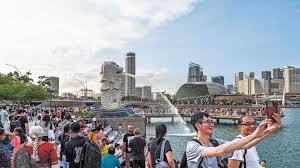How Bulgaria is quietly disposing of its Syrian refugees

Sofia: “I am really sorry for the delay in replying,” Rashid* wrote in a 4am WhatsApp message in July. “I was in detention in Sofia until yesterday. I just got deported.”
Rashid, who had been an asylum seeker in Bulgaria, wrote from inside Dubai International Airport. He was waiting for a connecting flight that he did not want to take—back to Syria.
Between 2013 and 2023, nearly all Syrians arriving in Bulgaria were granted some form of international protection, as a matter of policy. This changed in August 2024, when—despite the ongoing war at the time—Bulgaria’s State Agency for Refugees declared that there was an “absence of indiscriminate violence in the majority of the territory of Syria.” More than 80 percent of asylum applications from Syrians between October and December 2024 were subsequently rejected.
Then, just a few days after the Assad regime fell in December 2024, No Name Kitchen—a humanitarian organisation that supports migrants across Europe—reported that Bulgarian officers were coercing Syrian asylum seekers in reception centers to sign off on their deportation.
Bulgarian authorities’ about-face towards Syrians in the country is part of a wider change sweeping throughout Europe, which started before the fall of Assad, but has accelerated since. And while some countries within the European Union (EU) have noted that large-scale deportations to Syria are not currently feasible, it has not stopped others, including Bulgaria, from using threats of prolonged detention and destitution to force Syrians to leave.
The majority of Syrians living in Europe do not want to return yet. Rashid, who is originally from Syria’s northwestern Idlib province and arrived in Bulgaria in late August 2024, applied for asylum twice but was rejected each time. He chose to stay in the country regardless, found a job and tried to build a life. Then, one day on his way to work this past June, he was arrested for not having documents.
“They took me to the Busmantsi Detention Center [near Sofia],” Rashid recalled. “The treatment from the Bulgarian authorities [in detention] is like the treatment from the intelligence services of the former Assad regime.”
Inside Busmantsi, Rashid was given an ultimatum: either agree to a so-called voluntary return, or spend up to 18 months in detention.
“In prison, [the officers] forced me to sign many papers,” Rashid told Syria Direct. “There was no translator: they only spoke to me through Google Translate. When I asked them what I was signing, they didn’t give any information.”
Once he signed, a laissez-passer was arranged at the Syrian embassy in Sofia. “They took me in handcuffs all the way to the embassy, then removed them once we passed its doors. Within 10 minutes, my travel document was ready,” Rashid added.
With his new passport, Bulgaria’s Migration Directorate, part of the Ministry of Interior, bought Rashid a plane ticket back to Damascus for about 1,500 Bulgarian lev (around 750 euros). Rashid also received 150 euros in cash at the airport as “small cash assistance” for agreeing to “cooperate”. Some 75 percent of the money disbursed to deport Rashid, and other Syrians like him, comes from the European Commission’s Asylum, Migration and Integration Fund (AMIF), which funds Bulgaria’s returns program.
Rashid’s final hours in Bulgaria were not without incident. “When they took me to the airport, I tried to resist [my deportation]. Four undercover officers, and one in uniform, took me to a locked room inside the airport and beat me with batons,” Rashid said.
Two weeks later, Rashid was back at his family home in rural Idlib. “The situation here is difficult. The country needs at least 10 years of stability so that it can recover,” he said. “I am thinking I will try to leave for Europe a second time if I can.”
Yanka Kosarova, legal coordinator at the Bulgarian NGO Foundation for Access to Rights (FAR), said most Syrians in the country want to find a way to stay in Europe.
“It’s difficult for me to say, because we don’t have statistics,” Kosarova said. “The general consensus is that people do want to stay, but understand that now the situation is such that, with these refusals, it is very difficult to actually stay under international protection.”
Kosarova related to Syria Direct the experience of another asylum seeker from Syria, to whom FAR had provided legal support for his failed case, and who ultimately decided to return: “it was his decision: he was not detained.”
Even so, leaving Bulgaria was not straightforward: “[The Migration Directorate] didn’t have a problem with him leaving for Syria, obviously. But, for example, the first time he tried, one of the airlines did not allow him to board, so he had to search for another airline to actually get on a flight,” Kosarova explained.
Removals conducted without involvement from Bulgarian authorities are called “non-assisted returns.” Figures from the EU’s statistical office suggest that around 30 Syrians independently returned from Bulgaria to Syria between March and June 2025. Meanwhile, almost half of all returns since Assad’s fall were forced deportations.
Those who refuse the authorities’ return offer are simply left to endure detention, for up to 18 months—the upper limit of immigration detention under EU law.
20-year old Imad*, originally from Aleppo, had been detained at the Busmantsi facility for almost a year when Syria Direct visited him there in July 2025. He first arrived in Bulgaria in mid-2023, and obtained international protection shortly after.
A year later, however, officers appeared at Imad’s home at five in the morning and arrested him. He was told he was being detained on national security grounds. Bulgaria’s State Agency for National Security (SANS) issued him with an order to be deported to Turkey, a ban from re-entering the EU, and the revocation of his residence permit in Bulgaria. Imad has yet to see the evidence that is used to keep him in detention.
“They say I am a terrorist. Why did you give me residence if I’m a terrorist?” Imad said. “Why put me in jail? I didn’t kill anybody, I didn’t hurt anyone.”
Imad described abuse of detainees by detention staffers inside the facility. According to him, the day before Syria Direct’s visit, the guards had beaten up another detainee, and locked him up afterwards for 19 hours straight without access to bathrooms.
One way for Imad to get out of detention is to agree to a so-called voluntary return, like the one that Rashid took. “I have a brother here in Bulgaria, I can’t leave him,”he said, when asked whether he had considered the offer.
Imad’s brother, who was a minor when the pair first arrived in Bulgaria, is now an adult and has been living on his own. The two brothers once considered bringing their relatives from Syria through family reunification. But now, Imad had different concerns: “what if they get my brother [in detention] on terrorism as well?”
According to Diana Dakalova, head attorney at the Bulgarian legal aid NGO Center for Legal Aid, SANS has been increasingly involved in asylum cases.
“From our practice, almost half of individuals in [immigration] detention are national security cases. This is also the case for individuals who have been deprived of their [residence] status, as well as people who apply for citizenship,” said Dakalova, who is now representing Imad in court proceedings.
Asylum law requires Bulgaria’s State Agency for Refugees to seek a SANS assessment before accepting claims. But according to Daskalova, judicial oversight over SANS’ decisions has been lacking.
“Lawyers’ access to classified information is getting harder. We have had several cases in which we have been denied access to files at the [administrative] court level,” she said. “In general, there is an absolute lack of actual judicial control over these detention orders.”
In the attorney’s view, detention is increasingly being used as a method to influence people to leave Bulgaria, especially those who are undocumented.
Even outside immigration detention centers, conditions are difficult for asylum seekers in Bulgaria. Due to the increased rejection rate, a large number of Syrians now find themselves stuck in limbo, waiting for asylum decisions that are likely to be negative.
Khalil*, a 24-year-old from Aleppo, has been waiting more than seven months for a decision on his asylum claim. As a queer man, he fears for his life if deported to Syria. “If they take me to Syria, and my family finds out, I will be in trouble,” Khalil told Syria Direct.
He described how Sofia’s state-run refugee reception centers have been emptied as residents are taken away for so-called voluntary returns. As of July, he was staying at the Vrazhdeba camp, where entire floors were vacant. There, Khalil showed a video, which he said was taken earlier in the day, of what appeared to be police officers gathering camp residents around a van he said drove them to the airport.
“When the police came, some of the guys jumped over the fence and ran away. Some of them are hiding in the city, trying to avoid the police,” Khalil explained.
During a visit to Sofia, Syria Direct saw round-the-clock police patrols near the city’s so-called Arab Street, which caters to the city’s Syrian, Iraqi and Afghan populations.
While waiting for the outcome of his asylum case, Khalil was trying to make the best of his situation. He was learning Bulgarian and looking for work. Still, without a valid residence permit, he wondered if it was only a matter of time before he, too, would become a target for deportation.





